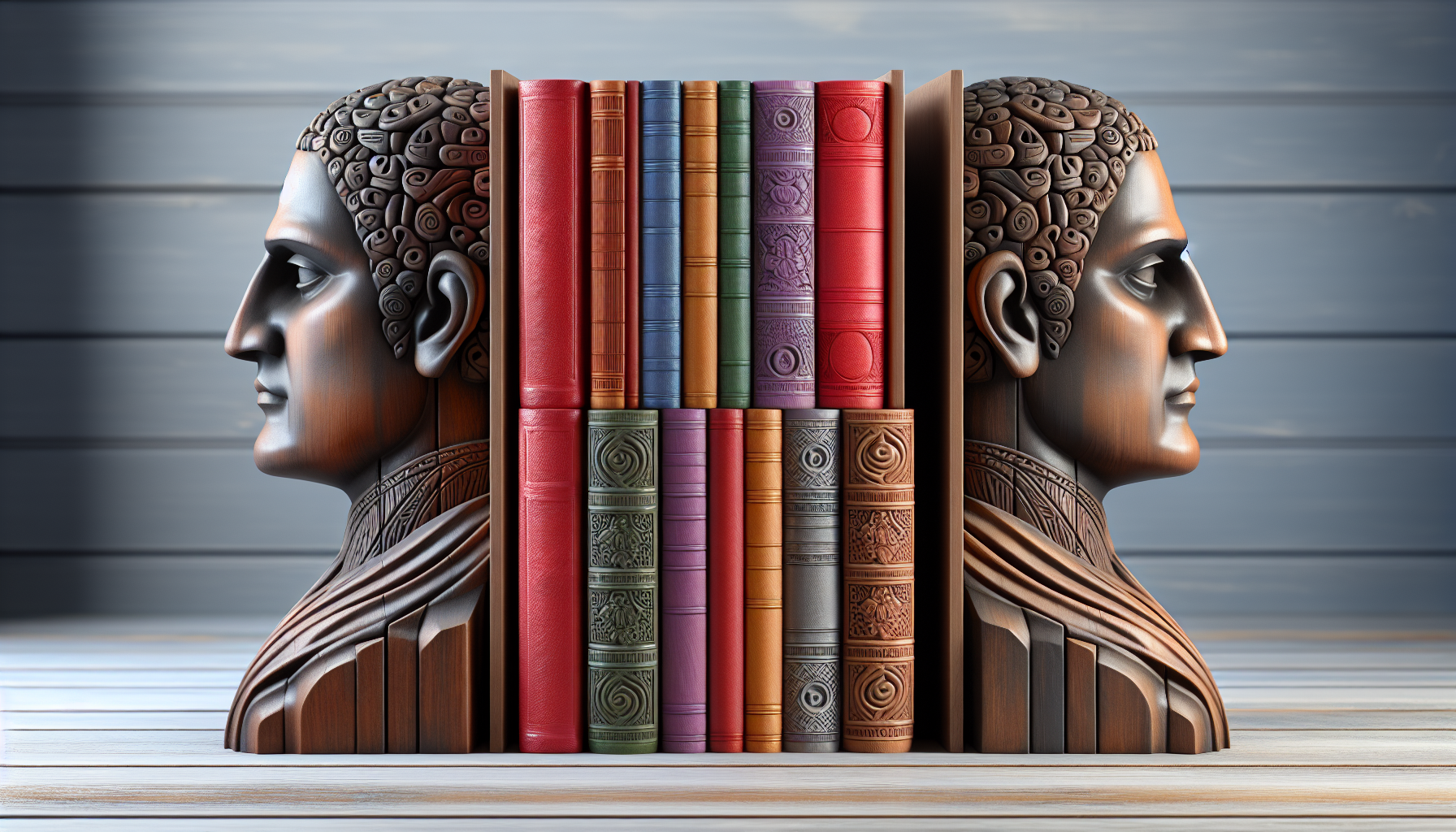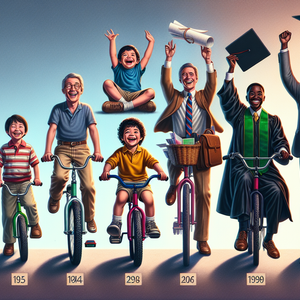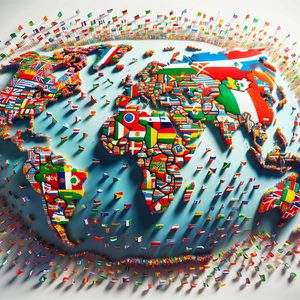The Adjective Archivist: A Journey Into Language, Creativity, and Connection

Adjectives are the artists of language. They take the skeletal framework of nouns and verbs and breathe life, color, and texture into them. Think about the difference between describing a person as “smart” versus “shrewd,” “brilliant,” or “perceptive.” Each word carries its own connotations, transforming the meaning of the sentence and revealing something deeper about the speaker’s perspective. For the Adjective Archivist, adjectives are more than mere descriptors—they’re tools of exploration. Each word chosen is an intentional act of observation, a way of framing the world through a unique lens. By committing to never repeat an adjective, the archivist elevates this act of language into an art form, one that captures the infinite variability of life. Imagine describing a single rose. On one day, it is “velveteen.” The next, it becomes “blushing.” Another day, it is “sun-dappled.” Each word not only conveys a different sensory quality but also captures the emotional resonance of that particular moment. This is the essence of the archivist’s mission: to preserve the fleeting beauty of the world through the infinite potential of language.
The Rules of the Game: Never Repeat an Adjective
At first glance, the idea of never repeating an adjective seems daunting, if not impossible. After all, how many ways can one describe a sunset, a storm, or a single raindrop? But this linguistic challenge is precisely what makes the practice so transformative. It forces the archivist to delve into the underexplored corners of language, unearthing rare and forgotten words like “effulgent,” “lambent,” or “tenebrous.” Consider the raindrop, a seemingly simple subject. To most, it might be “wet” or “tiny.” But to the Adjective Archivist, it could be “prismatic,” “gem-like,” or “evanescent.” Each descriptor captures a different quality, a momentary truth about that particular raindrop. In this way, the archivist’s work becomes an act of discovery, revealing layers of complexity in even the most commonplace objects. The challenge also requires discipline and meticulous record-keeping. The archivist might maintain a journal or digital archive, cataloging each adjective used and the context in which it was applied. This record becomes both a personal lexicon and a reflection of their ever-evolving perception of the world.
The Creativity Connection: Seeing the World Through New Eyes
One of the most profound effects of this practice is its ability to transform how the archivist views their surroundings. To describe a sunset as something other than “beautiful” or a forest as anything but “lush,” they must look closer. What makes this sunset distinct from the last? Is it “amber-streaked,” “dusky,” or “flame-edged”? What about the forest—could it be “shadow-kissed,” “verdure-cloaked,” or “ancient”? This heightened level of observation fosters not just creativity but also mindfulness. By focusing on the subtleties of the world, the archivist learns to appreciate details that others might overlook. This practice becomes a form of meditation, grounding the archivist in the present moment and deepening their connection to their environment. For example, a simple walk through a garden might yield a cascade of unique impressions: “dew-spangled petals,” “emerald-tipped leaves,” or “sun-warmed soil.” Each adjective reflects not only the physical reality of the garden but also the archivist’s emotional and sensory engagement with it. This interplay between language and perception creates a richer, more immersive experience of life.
Memory and Meaning: The Lingering Impact of Unique Descriptions
Another fascinating outcome of the archivist’s practice is its impact on memory. Research shows that the act of describing something in detail helps cement it in our minds. By choosing unique adjectives, the archivist engages deeply with their subject, creating vivid mental snapshots that are far more likely to endure. Imagine standing on a cliff overlooking the ocean. To most, the waves might be “blue” or “crashing.” To the Adjective Archivist, they could be “cobalt-tinted,” “foam-flecked,” or “thunderous.” Each descriptor captures a specific moment in time, turning a fleeting experience into a lasting memory. Over time, the archivist’s collection of adjectives becomes a kind of personal archive, a record of their journey through the world. Each word is a breadcrumb leading back to a particular place, feeling, or moment. This archive not only enriches their understanding of language but also serves as a testament to their unique perspective on life.
A Challenge for All of Us
While the Adjective Archivist’s commitment to never repeating a descriptor might seem extreme, it’s a practice that anyone can try in small ways. The next time you write a journal entry, describe a scene, or even compliment someone, challenge yourself to use adjectives you’ve never employed before. For instance, instead of calling a friend “kind,” could you describe them as “warm-hearted,” “altruistic,” or “compassionate”? Instead of labeling a meal “delicious,” might it be “savory,” “succulent,” or “palate-pleasing”? These small acts of linguistic creativity can help you see people, places, and experiences in a new light. The Adjective Archivist reminds us that language isn’t just a tool for communication—it’s a way of shaping our reality. By choosing our words with care and imagination, we can transform even the most ordinary moments into something extraordinary.
In a world that often feels rushed and repetitive, the Adjective Archivist offers a powerful reminder: there is infinite variety and beauty in life, if only we take the time to notice it. By committing to never repeat an adjective, the archivist embarks on a journey of linguistic exploration, uncovering the hidden nuances of the world. This practice fosters mindfulness, sparks creativity, and deepens our connection to the people and places around us. So, the next time you find yourself reaching for a familiar adjective, pause. Look closer. Dig deeper. You might just find a word that transforms the moment into something unforgettable—an act of artistry in the everyday.
Lexicographer
Oxford English Dictionary, Merriam-Webster, digital platforms like Grammarly or Duolingo
Core Responsibilities
Research the origins, meanings, and evolving usage of words across various languages.
Analyze written and spoken texts to identify trends in word adoption and contextual meaning.
Collaborate with linguistic experts to curate dictionaries or specialized lexicons for academic, commercial, or digital use.
Required Skills
Expertise in linguistics, philology, or etymology.
Meticulous research and analytical abilities to identify nuanced shifts in language.
Strong writing skills to craft precise and accessible definitions.
Unique Qualification
A deep passion for the history and cultural context of words, paired with an ability to make language accessible to a broad audience.
Creative Copywriter (Specializing in Brand Voice Development)
Creative agencies, startups, global brands like Apple, Nike, or Squarespace
Core Responsibilities
Develop original, brand-specific tone and voice guidelines to ensure consistency across all media platforms.
Write compelling copy for advertisements, website content, and social media campaigns.
Collaborate with marketing and design teams to create emotionally resonant messaging.
Required Skills
Expertise in word choice, connotation, and the psychology of language.
Experience in storytelling and the ability to distill complex concepts into simple, poignant messages.
Familiarity with SEO and digital content strategies.
Unique Qualification
The ability to craft language that resonates deeply with specific audiences, creating lasting brand loyalty.
Linguistic Anthropologist
Universities, research institutions, UNESCO, or nonprofit organizations focused on language preservation
Core Responsibilities
Conduct fieldwork to study how language reflects and shapes social norms, traditions, and identity within a community.
Analyze and document endangered languages to preserve cultural heritage.
Publish research on language’s role in societal structures, rituals, and interpersonal connections.
Required Skills
Advanced degrees in anthropology, linguistics, or a related field.
Proficiency in one or more languages, especially those that are understudied or endangered.
Strong observational and analytical skills to interpret cultural-linguistic nuances.
Unique Qualification
A passion for connecting language to culture and a commitment to preserving linguistic diversity in a rapidly globalizing world.
UX Writer (User Experience Writer)
Tech companies like Google, Microsoft, or Shopify; digital agencies; startups
Core Responsibilities
Write clear, concise, and engaging microcopy for apps, websites, and software interfaces, including buttons, tooltips, and error messages.
Collaborate with designers and developers to ensure that language enhances usability and accessibility.
Conduct user research to test and refine copy for maximum clarity and impact.
Required Skills
Strong writing skills with a focus on brevity and precision.
Experience in user-centered design processes and usability testing.
Familiarity with design tools and frameworks, like Figma or Adobe XD.
Unique Qualification
The ability to combine creativity with functionality, ensuring that every word serves the dual purpose of guiding and delighting users.
Terminologist
International organizations like the United Nations, translation agencies, or companies with global operations like IBM or Siemens
Core Responsibilities
Develop and maintain glossaries of specialized terminology for industries such as law, medicine, technology, or engineering.
Collaborate with subject matter experts to ensure accuracy and cultural appropriateness of terms.
Translate and localize terminology for global audiences, adapting it to regional linguistic norms.
Required Skills
Deep understanding of specialized vocabulary in a given field, often requiring advanced education or certification.
Proficiency in multiple languages and localization best practices.
Analytical skills to identify gaps or inconsistencies in existing terminology.
Unique Qualification
A knack for bridging cultural and linguistic differences to create universally understood and precise terminology.


